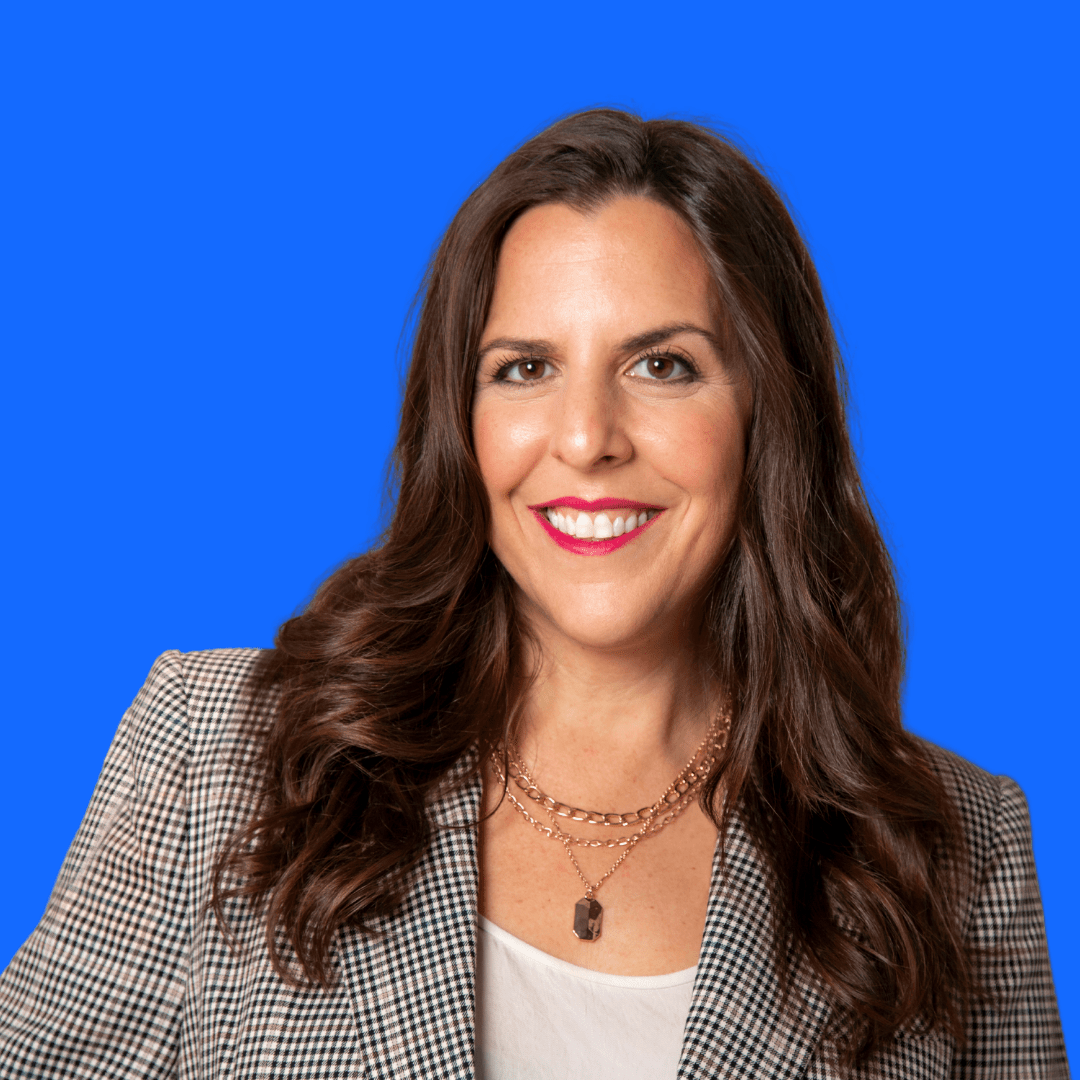The Crunchbase “Female Founder Series,” is a series of stories, Q&As, and thought-leadership pieces from glass-ceiling-smashers who overcame the odds and are now leading successful companies.
Julie Crabill is helping families and kids create good energy and positivity, particularly during the pandemic while many are still confined at home and learning remotely. During these difficult times, Crabill has steered the company’s marketing and communication efforts and built new content platforms to help families through the pandemic, while positioning the company as the essential go-to resource for parents, caretakers, educators, and kids.
As a founder herself, and after 20 years of working closely with CEOs and executives across the technology industry, Crabill saw an opportunity to bring her passion for storytelling to GoNoodle, where she could have an entrepreneurial role running the marketing team. In this Q&A, we asked Crabill how she began her career and what advice she would give to other entrepreneurs.
Q: Did you always know that you wanted to be an entrepreneur?
When I started my career, I didn’t set out thinking, “This is what I want to be,” the desire came in waves. As the reality of starting my own business got closer, I realized how difficult the actuality of being an entrepreneur was and I started feeling apprehensive. Thoughts would creep into my mind like, “I should just keep my plush job, good paycheck, and stay in my happy safe place.” When I finally decided to take the leap, it wasn’t because I had this grand realization of, “Now is my moment to leave that behind and start this.” My world suddenly changed at my job and it was a fork in the road moment.
So I took the leap – in 2008, during the great recession. I am not sure I would have done it had the moment not been thrust before me but I am so glad I did. The highs and lows in the early days were like a rollercoaster ride, one day I’d be thinking, “Why the hell did you give up a stable gig for this!?!” and then the next day, “This the best thing I ever did!” The emotions really ebbed and flowed.
Q: Did you always know you wanted to focus on marketing?
Originally, one of my dreams was to be an actress. After spending some time in LA, like so many people on that career path do, I became a jack of all trades, trying my hand in a series of different temp work positions. I met one of my early mentors, Geoff Champion, when I did temp work and then worked for a headhunting firm. Geoff would listen to me talking on the phone with senior executives in my early twenties and told me that the confidence and fearlessness I had in those interactions was an unteachable skill. Luckily for me, he pointed it out and helped direct me toward how I could best use it.
As I searched for a field where I could put it to use, I found marketing. At first, I thought it was really about that fearlessness in talking to people – turns out there’s a lot more to it, including a ton of writing that was not necessarily what I thought I was getting into. But, I buckled down and worked to lean on those core skills while I pushed learned the other areas of marketing and, specifically, communications. It’s important in life to do some research, build some assumptions, then watch many of those assumptions blow up as you learn everything you can hands-on.
Q: Did you identify any issues in the field that drove you to think, “I’m going to start my own business.”
Ultimately, I did. I learned the fundamentals of the services business model from Sheri Benjamin, a mentor to this day. That early foundation allowed me, through the years of working in different communications agencies, to see how the often mercenary approach to selling services to the highest bidder could backfire. At their best, account teams were built based on previous experience of the team members, but more often than not they were really dictated by who had available time to take on the project.
So, the client would be sold on the agency’s experience and senior people but be serviced by mid-to-junior level people who happened to have the time in the monthly hours forecast. From there, watching my colleagues gave me what may seem like a simple epiphany, people played favorites. Watercooler or post-work drink conversation would always touch on “Oh, this client is my baby! I love them, their story is awesome,” followed by details on what amazing thing the person was working on for them. Or, “ugh, these guys are the worst,” followed by stories of an annoying client contact or details on how the colleague was just trying to “get it over with.”
People did better work when they loved what they were working on. It really doesn’t seem like rocket science that you should want people who work for you to have passion for what you do. Ideally, this would expand across all areas of a business, but I would argue it’s particularly important that the people who are out in the world telling your story have that passion. The structure of most communications agencies makes it difficult to build account teams based on passion but I saw that people did better work on accounts they loved. They would push until the job was done, go the extra mile, and build camaraderie with the client-side people that would make the combined work that much better. Conversely, those who hated an account, would watch the clock, stop when the time ran out, and phone it in.
So my premise for starting my business was, what if we could just focus on our passions? What if people could pick the things that they worked on based on the stories or clients they loved? It was a utopian vision – and, over eight years of running the business, we had to find flexibility within the vision, but our focus on passion projects gave us the reputation for telling it like we saw it.
We said no more often than we said yes. And people who would come to us with one company that we said no to because it wasn’t a fit for our interests, would come back years later with their next company because they appreciated our candor. I think being honest and direct is the biggest difference-maker, outside of innovative technology, in business today. People might not always like what they hear, but if you tell them the truth thoughtfully, they’re going to trust that you will do the same again next time. It makes a big difference.
Q: How would you say you networked, found communities, or made the connections you needed to succeed?
It changed over time. Early on, I was everywhere. “Where is everyone going after work today? Is there an event happening? Can I join?” I definitely paid those dues and sacrificed early on to work long hours and meet as many people as I could. It’s not for everyone.
As I got older, my focus changed. I got more targeted and specific, finding ways to spend time with smaller groups of people that were more impactful. It became less about talking about business all the time and felt more in the tradition of a salon – where we came together with interesting people for good conversations, food, and wine. These were more genuine and authentic interactions. And, of course, the most interesting aspects of business and technology would come into the conversation since the groups were mainly composed of entrepreneurs.
It was about bringing a myriad of people, with different interests, together and having a good time. Tribal Leadership is a great book for inspiration here. I think it highlights the law of threes – the idea that if I’m telling you that I’m amazing and you should hire me it never works as well as if there’s a third party saying it. And, that the third party also gets some benefit in your perception of them by creating the connection. So, making and strengthening connections in this way becomes more important over time. And, those relationships have been both more beneficial and longer lasting across the board.
Q: Did you ever feel welcomed and accepted as an underrepresented group in the VC space?
I think that, because I bootstrapped my business, my interactions in those kinds of circles were different. It was more that it was difficult for some men in tech to see me as a business leader and an entrepreneur versus a PR person. I think it’s difficult any time you evolve in your career for people to catch up with the change, especially for women in tech. They’re always going to remember you as whatever you were when they first met you.
I think that women in business struggle more than men in sort of reminding people, “Hey that was 10 years ago, here is what I do now. Ironically, a man I knew once asked me if I knew any entrepreneurs he could talk to who had successfully bootstrapped and grew a business. I was about 6 years into successfully doing just that. And I had a friend in the media say, “Hey Julie, you never pitch me anymore” to which I replied, “Yeah, and you never write stories anymore because you are an editor now – and I run a business now, so I’m not the person pitching you day-to-day anymore.” Sadly, women in business and tech often need to push people to not overlook them, they need to stand up and make their role in the room clear.
Q: Do you have a specific challenge in your career that you are most proud of overcoming?
After I sold my company, my next gig was a time of transition, and oftentimes, as a woman in a very male-dominated business and industry, going through a dramatic change can leave you feeling foundationally shaken. It can leave you questioning if the issue is with you, if you’re good enough, if you should even be at the table. It’s difficult to come back from those feelings.
Ultimately, my tribe, mentors, and friends helped me get past it and I transitioned into a consulting capacity again. That gave me the confidence to know the issue wasn’t with me. From there, I jumped into the CMO role at GoNoodle, where my talents and expertise could be brought to the table in a way that was deeply respected.
Now I am in a business with a much higher percentage of women and diversity – of both people and mindsets. I think a lot of women in business go through those feelings. It’s important to find and stick close to your people – whether it’s other women in business, friends, family, therapists, or mentors – then, when you feel your base instincts or foundational trust in yourself has been shaken, that trusted group can help you push through.
Q: Do you have a favorite quote or mantra that you use to keep yourself motivated?
There are a few. One of my favorites is, “I’m not my target market.” It’s something I saw on a mug in Sheri Benjamin’s office nearly 20 years ago and it has stuck with me. No matter what, we as humans, have the tendency to assume other people are like us, they want what we want, and they are motivated by our same motivations.
Through the years, I’ve realized the things that motivate some people, like receiving praise in front of an audience, are other people’s worst nightmares. And, our own desires change through time as we age, grow, and gain experience, so keeping that perspective in mind, has helped me expand my thinking around how I work and interact with all kinds of people.
The two pieces of text I have in my office are the Calvin Coolidge quote, Press On. It reminds me that no matter who or what you are up against, you cannot feel less than – you just need to be persistent to win. And Teddy Roosevelt’s The Man in the Arena, which reminds me to ignore the haters who like to sit on the now social media sidelines and critique – stay focused on being in the arena.
Whether I win or lose, of which I’ll continue to do a lot of both, I need to stay in the thick of it. I can’t retreat when I am feeling battered or bruised by the process. There will always be someone saying you are too aggressive or bossy – or telling you from the sidelines what they think you should do or focus your time on. Listen to advice from people you trust and don’t let those people get in your head. Go through the struggles and remember those critics are usually people who are too afraid to even get in the arena.
Q: Do you identify specific qualities that led you to your success?
For me, my deepest values are rooted in being passionate and loyal. If I am on your team, I’m on your team for life. I make a lot of my decisions based on creating a connection of loyalty with the people I work with, both in my current job, previous gigs, and general business relationships.
In terms of passion, I have a passion for telling important stories that help people. It’s what the company I founded was based on but it’s also what has driven my work at GoNoodle. What drew me to GoNoodle is that I could continue to have an entrepreneurial role, in running the marketing team like it’s my own business – and that I could help parents (as a mom to a seven-year-old, I know how hard it is).
During COVID-19, that became even more important to me. I saw the challenges parents and teachers were facing and I wanted to do what I could to help and create good energy and positivity during a really rough time. The CEO’s commitment to building an entrepreneurial leadership team and the fact that my passion aligned directly with GoNoodle’s mission made the job a perfect fit.
Q: If you could give one piece of advice to other female founders and executives, who are at the beginning of their journeys, what would it be?
Very quickly identify what you think will matter most to the success of your business, as well as your weaknesses, blind spots, and the areas where you shouldn’t be spending time and energy.
People often ask me what the key was to my success in the business that I ran and sold. It started with aligning with a co-founder whose strengths were my weaknesses, blind spots, and things I knew wouldn’t be the right use of my time. For me in that specific business, it was finance and business operations. If I had tried to split my focus among those things and the core needs of building the business and team, I would have tanked the company.
You need to identify which things will offer the highest value return on your time. If there are tasks you can outsource to someone you trust or that you can partner with, whatever that might look like for you, do it.
Q: What piece of advice would you give for entrepreneurs that are trying to scale their company?
You as the leader need to place some bets on where you think the business needs to go. A lot of entrepreneurs have a hard time doing this because they naturally want to do a lot of different things and will push in every direction they can to build a successful business.
It’s not only about hiring amazing people – you need to give them clarity of focus and then empower them with the authority to make decisions and take risks within that vision. And, no matter how good your people are, if you can’t provide that focus and clear decision authority, you will fail.
Q: Do you have any thoughts or advice for entrepreneurs in this current economic climate?
We’ve seen a lot of success stories come out of downturns. I started a new business during a big one. I encourage people to go for it. Don’t be limited by fear. Start by thinking, “What are people going to care about as the veil of COVID, lockdowns, and quarantine lift?”
If you can find a place where you think people are going to want to spend money and time – that your business can be a part of – get going. Be aggressive, be specific, and find the right people to surround yourself with while you create your business. Now’s a great time to start a company.





